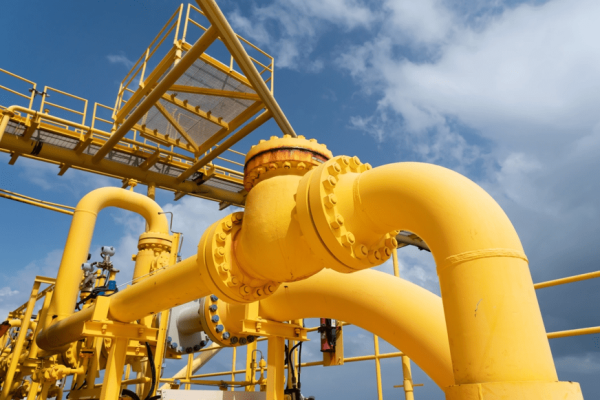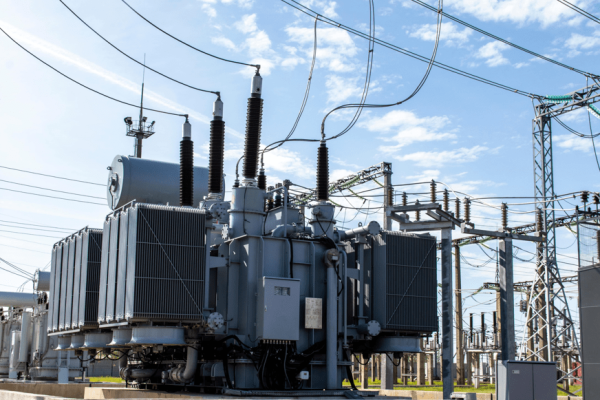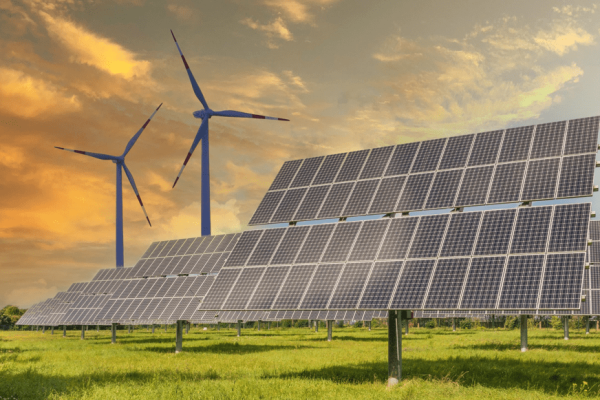Focus on ESG: the world is confidently switching to green rails and sustainable development principles
5 November 2021
1276

In Kazakhstan, only some of the major backbone companies, major market players, and national development institutions are ready to implement the Environmental, Social & Governance principles.
Sustainable development, which is based on three pillars, i. e. social and environmental responsibility, as well as the quality of corporate governance (Environmental, Social & Governance, ESG) – Is increasingly becoming the main criterion for evaluating enterprises and countries.
The world’s leading analysts are confident that ESG is the future. For example, according to forecasts by Bloomberg Intelligence Global, the assets of funds focused on ESG principles will potentially increase by 15% by 2025 and will exceed USD 53 Trillion.
S&P Global, in turn, found that companies that focus on the implementation of and compliance with ESG principles are more commercially viable. In 2020, S&P 500 ESG index return was 17.55%, and the return on the “traditional” S&P 500 index was 16.24%. More importantly, the profitability of the S&P 500 ESG was higher both for the whole calendar year and during the severe “drawdown” of the economy in March 2020. In addition, S&P Global, like Fitch Rating and other centres of excellence, predicts further tightening of Due Diligence in the ESG area, intensification of the policy of excluding inappropriate projects, as well as coverage of a wider range of ESG issues in corporate reporting and risk management.

Companies’ focus to ESG principles confirms their stability, guarantees a decrease in non-financial and reputational risks, and increases the attractiveness of assets. Thus, according to Reuters, the investment attractiveness of funds focused on ESG increased sharply in the “coronavirus” 2020: assets under their management in the fourth quarter grew by 29%, up to a record USD 1.7 Trillion. The inflow of funds to such funds in the same fourth quarter also reached a record level, increasing by 88% to USD 152.3 Billion. What’s more, US ratings agency Morningstar reported that at least in the US the indicators hit new highs in the first quarter of 2021.
In Kazakhstan, sustainable development is not yet talked about so often, and only a few are systematically applying the principles of ESG in their operations. For example, in 2015, KASE – Kazakhstan Stock Exchange – joined the UN Sustainable Stock Exchanges (SSE) Initiative. As part of the ESG practices on the exchange, for example, in 2020, the listing of the first issue of green bonds of the Asian Development Bank for 14 Billion Tenge was envisaged, and in the current 2021 – the listing of the first issue of gender bonds of the Asian Development Bank for 8.4 Billion Tenge so.
KASE ESG disclosure requirements include data on sustainability, social responsibility and corporate governance criteria, a list of key performance indicators in relation to general environmental and social issues, guidance on ESG industry specifications, etc.
The annual report for 2019 disclosing ESG information was presented to the exchange by 86 companies, including banks, national holdings, development institutions, as well as leading industry companies – for example, by Kazatomprom, KazTransOil, KazMunayGas, and others.

Note: among the companies that are moving to the principles of ESG, there are industry leaders tremendously impacting on the economy and social sphere of the country. One of these giants implementing ESG is the Eurasian Group, ERG. Today, the corporation has formed an ESG committee that coordinates the work of all companies of the group on the implementation of environmental innovative solutions and the development of production, focusing on the priorities of the “green” economy. In addition, since 2018, its own long-term environmental strategy has been in place, integrated with the energy and production strategy of the group.
Considering that ERG forms 2% of the country’s GDP, provides jobs for 61 thousand people and generates another 92.8 thousand additional jobs, the group’s transition to ESG will have a comprehensive impact on all spheres of life in Kazakhstan.

ERG’s costs for environmental protection activities in 2019-2021 amount to 43.6 Billion Tenge. The planned figure for the current year is 17.1 Billion Tenge. In general, the planned investments into the environmental program, taking into account the implementation of industrial projects for energy efficiency and the construction of renewable energy sources, will amount to more than 700 Billion Tenge by 2030.
Within the framework of the program, it is planned, among other things, to reduce emissions of solid particles by 56% (about 76 thousand tons), to reduce emissions of pollutants by 30%, to process and sell secondary materials obtained from production waste (up to 2 million tons via ERG Recycling Company) etc. Only in Pavlodar Region, where four main enterprises of the group, i. e. Aluminum of Kazakhstan, EEC, KEZ, and Aksu Ferroalloy Plant are located, 16 large-scale eco-projects totaling 134 Billion Tenge are being implemented.
As part of supporting the social sphere, the group, for example, plans to plant 420 thousand trees by 2025. Investments into the project are about 1.5 Billion Tenge. In addition, various socially significant improvement projects are funded (for example, such as the construction of children’s sports grounds in Shymkent City), educational projects (for example, about a thousand schoolchildren, as well as unemployed from large and low-income families received access to free courses of computer and Internet-literacy, programming, SMM, and e-commerce), etc.

As for taking care of the working conditions of employees, since 2016 the company has been implementing the program to bring the sanitary facilities and amenities at the group’s enterprises to a unified standard. In general, for the years 2016-2021, investments into the repair of the sanitary facilities and amenities amounted to about 25.2 Billion Tenge, of which 19 Billion Tenge was invested until 2020 inclusive. Within the framework of the program for the years 2016-2020, about 3 thousand facilities were repaired, and this year it is planned to repair about one thousand facilities more.
In general, such big business initiatives are extremely important and relevant, especially given the fact that overall capital investments aimed at environmental protection have noticeably decreased in Kazakhstan this year. At the end of five months, the indicator amounted to only 25.1 Billion Tenge, against 47.6 Billion Tenge in the same period in 2020 and 44.2 Billion Tenge in 2019.
Popular articles
Watch allGas Production Declined, While Prices Jumped 28% Year-on-Year
In January–July of this year, natural gas production in Kazakhstan amounted to 14.8 billion cubic meters, down 10.3% compared with Читать далее...
17 September 2025
3948
Who and why does Kazakhstan’s saiga antelope give trouble?
Experts question the department’s statistics, as well as decisions made at state level regarding saigas In early summer, there Читать далее...
28 June 2022
3543
Which Social Networks and Messengers Do Kazakhstan’s Young People Prefer?
According to the analytical report “Youth of Kazakhstan” for 2024, one of the most common ways young people spend their Читать далее...
9 October 2025
3517
Kazakhstan’s Citizens Are Meat Lovers: Meat and Meat Product Consumption Up by 2%
In January–September of the current year, Kazakhstan produced 57.3 thousand tonnes of fresh or chilled meat from cattle, pigs, sheep, Читать далее...
29 October 2025
2732
Electric Vehicles Accounted for Less Than 1% of All Registered Cars in Kazakhstan
From January to July of this year, 925.8 thousand passenger cars were registered in Kazakhstan, 0.3% more than in the Читать далее...
28 August 2025
2698
“Pirating” in Kazakhstan: 59% of Young People Use Free Platforms to Watch Films and Series
According to the analytical report Youth of Kazakhstan for 2024, one of the most common leisure activities among young people Читать далее...
26 September 2025
2445
Power generation reaches 53.7bn kWh in January-July, up by 1.7% year on year. Gas turbine power plants with a capacity of 100,000 kW worth KZT18.6bn were commissioned in the first half of the year
Electricity tariffs went up by 5.8% year on year in August
16 September 2016
2063
Kazakh oil refineries supplied 73.3% of motor fuel consumed and 97.4% of diesel fuel consumed in the country. Petrol output increased by 10.6% and production of gasoils by 3.6%
The price of the most popular octane-93 petrol increased by 16.4% year on year to KZT125 per litre in July. The price of summer diesel increased by 3.3% year on year to KZT99 per litre
15 September 2016
1873
Industrial enterprises navigate to sustainable development
Major industrial companies’ investments into social and infrastructure projects in 2019 exceeded 140 billion Tenge Kazakhstan has been holding Читать далее...
5 November 2021
1415
Safeguarding the nature: investment into environmental protection increased by 34% over the year
The number of fixed point sources of pollution in 10 years has increased by 58% Environmental issues are extremely Читать далее...
5 November 2021
1406
How Much Do People in Kazakhstan Spend on Medicines?
In the second quarter of this year, household healthcare spending in Kazakhstan averaged 28.8 thousand tenge per household, 6.6% less Читать далее...
25 September 2025
1282
Focus on ESG: the world is confidently switching to green rails and sustainable development principles
In Kazakhstan, only some of the major backbone companies, major market players, and national development institutions are ready to implement Читать далее...
5 November 2021
1276
Output of unrefined and semi-refined gold increased by 21.5% year on year, that of refined gold by 16.5%
Jewellery prices jump by 20.1% year on year on average in Kazakhstan, by 50% in Astana
6 September 2016
1149
Renewable energy generation capacities goes up by 40% year-on-year in Kazakhstan in 1Q2016
Clean energy generation jumps by 130% year-on-year in this period
22 June 2016
1113
Kazakhstan’s crude oil and gas condensate output fall by 3.4% year on year in January-July 2016
In July 2016 crude oil and condensate went down by 0.9% year-on-year
26 September 2016
954














